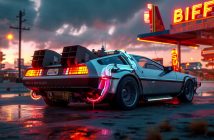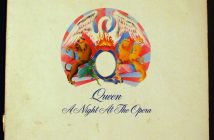Since the release of Marvel’s highly anticipated Avengers: Age of Ultron, critics have bombarded it with harsh critiques stating that the film is inherently misogynistic and anti-feminist. Our two writers discuss.
Before getting into the whole criticism thing, it’s important to remember that Age of Ultron is definitely a good film. It’s fun, enjoyable, and engaging. That being said it is not a perfect film. It has flaws, some of which have been more vocally expounded than others by critics and the general public.
Coming away from the film after first seeing it, the most immediate problem to be found had nothing to do with gender-roles or women, it was instead a sense of lacking. The film lacked something that the first Avengers had brought. The lacking in the film came from it feeling kind of pointless. Like, it gave no real movement towards the grand scheme of things. Marvel and the MCU (Marvel Cinematic Universe) have always been the guys with a plan, a great big vision of their numerous films all coming together to serve one overarching story. A story made up of three phases, each concluded by an Avengers film. Age of Ultron, more or less marks the MCU being two-thirds of the way to completion, it’s probably more like half, and yet it didn’t feel climactic. There was no sense that it was concluding anything, or setting anything else up. It was very run-of-the-mill. Ultron, though promising, was ultimately a quite disappointing villain. He didn’t push the Avengers, who swept him up like it was all in a day’s work. Sure, he was fun to watch, he was witty, he looked cool but he didn’t bring the same sense of real threat that Loki did in the first film. Age of Ultron didn’t achieve anything beyond some character development. More happened, in terms of the wider plot, in Winter Soldier than it did in Age of Ultron, which doesn’t seem right. It was filler, an entertaining filler, but a filler nonetheless.
The whole Hawk-Eye thing didn’t really make sense. There’s no way his pregnant wife would be totally okay with him going off and risking his life without at least trying to convince him otherwise.
Leaving aside Age of Ultron’s place in the MCU, there was one aspect of the film that was subject to some full-blown internet-rage: Black Widow. More specifically the inclusion of a kind of romantic sub-plot involving her and the Hulk. The general shape of the criticism levelled at the sub-plot was that it was bad because Black Widow, a female character, was lumped with a love story because she’s a girl and that’s just what girls do. This criticism is not only misdirected but it’s little bit wrong. Black Widow falling in love isn’t misogynistic. Women are people, and people fall in love all the time. Black Widow falls in love not because she is a woman, but because she’s a person. Though wrong, the criticism raised another point, one that is much more important. People were not angered by Black Widow, a woman, falling in love. They were angered by Black Widow being the only female superhero, and falling in love.
In a recent Reddit AMA, Mark Ruffalo was asked about the criticism directed at Age of Ultron: “I think part of the problem is that people are frustrated that they want to see more women, doing more things, in superhero movies, and because we don’t have as many women as we should yet, they’re very, very sensitive to every single storyline that comes up right now.”
This is the main problem that Marvel has in terms of gender: a lack of diversity. Black Widow falling in love just called attention to her being the only female Avenger. Marvel, and those who disagree with the criticism, will point to Scarlet Witch becoming an Avenger at the end of Age of Ultron and to the upcoming Captain Marvel (scheduled for 2018), a film which will not only introduce a new female superhero (the eponymous Captain Marvel), but will also be the franchise’s first female-lead film. While it is true that Black Widow is no longer the only female Avenger, this feels kind of like retroactive diversity. Both Scarlet Witch and Captain Marvel existed as characters in the comics well before the first Avengers film, and could have been included from the off. Also, they may be introducing two new female superheroes, but for each of them, two or three male heroes are introduced as well.
Marvel could similarly point to the comic-book characters themselves, who are largely male, or could argue that the most well-known superheroes are male, but that argument isn’t really good enough. Not only were Iron Man, Thor, and especially Hawk-Eye unknown to the general movie-going populace before Avengers, not to mention the newer characters: Falcon, Dr. Strange, Black Panther, etc. are all characters only known to comic-book readers, the films and the comic-books are both made by Marvel. Marvel create all of these characters. They could, with a flick of their wrist, create engaging, leading female superheroes, give them a year or so to run in the comics and put them in films. The idea of being restricted by source-material may apply to someone like Fox for the X-Men films (which, by the way, have consistently had more diverse ensemble casts than the Marvel films), but it doesn’t really apply to Marvel. There is a lack of female superheroes in the MCU by design, not some unchangeable fate.
By Matt Clarson
I don’t think that there is a blockbuster film this year that will match Avengers: Age of Ultron for its fun, depth, and utter density. However, amidst the near constant disclaimer that Age of Ultron was not as good as the first one, actual criticisms sprung up out of the ground. It would be very easy to discuss all the criticisms. But I’m going to celebrate everything that the film gets right, which is basically everything.
Let’s start with the finale. Just about every Marvel Phase 2 film ends with a broadly identical finale where there’s loads of moving things, bullets, flying ships or men, and a giant villainous object falling to Earth/Xandar. Some are the dark elf’s ship in The Dark World, the helicarriers in The Winter Soldier and the dark aster in Guardians of the Galaxy. On that note, Age of Ultron was different. Villainous robot Ultron (James Spader) takes a piece of Sokovia (fictional Eastern European home of Scarlet Witch and Quicksilver) into the sky to drop it down on the Earth, like a meteor as to act as the grand extinction event. Meanwhile, the Avengers fight wave upon wave of grey robots. Boring, right? While it arguably drags on, this is because there are an unbelievable number of characters. The finale cuts between them all, each dealing with new evolutions to their problems, cutting back to see them solve it. Peppered throughout are moments when characters work together to success. For example, Thor (Chris Hemsworth), Iron Man (Robert Downey Jr.) and Vision (Paul Bettany) all team up to blast Ultron with their powers. It’s ripped straight out of a comic book, looks good, and works. The action can feel utterly chaotic, yet it is also fun, ridiculous, and extremely well edited.
The action throughout is full of moments like these. The characters rapport feels genuine (the whole “Language!” exchange mocking Captain America is delightful). It is also great fun simply watching them all hang out, spouting the golden dialogue of Joss Whedon, with each line entirely befitting their personalities.
Finally, there is real heart and soul to Age of Ultron. Because it is so dense with plot mechanics, and some set-ups for future films, it can be hard to grasp all the levels it operates on. But all the characters have unique, very personal challenges to deal with. Most of them are about their fears and the idea that they are monsters, as inspired by Scarlet Witch (Elizabeth Olsen). Natasha Romanoff and Bruce Banner (Scarlet Johansson and Mark Ruffalo) are the best and the most emotional examples of this. They clearly love each other, but while she wants to be with him and is willing to open herself up to a person in a very intense emotional way, he will not allow himself that happiness. Both of them are living with the guilt of their past. It’s why it makes so much sense that they gravitate towards each other in that way. Their different surface personalities make their interactions, particularly the delightfully flirty exchange at Stark’s penthouse bar, so charming. Underneath it all, they’re both scared. Some have criticised Whedon horrendously for Natasha’s apparent self-identification as a monster because she can’t have children. That being said, because she can’t have the life that her best friend (Hawkeye) has made for himself, is somehow incredibly misogynistic. However it doesn’t read like that contextually. Natasha’s choice to have a family was taken away from her, the same as Bruce’s. It’s traumatic and powerful.
They are not even the only characters to deal with troubling issues. Captain America (Chris Evans) is still unsure about his place in the world. In an offhanded throwaway talk with Falcon (Anthony Mackie) he mentions that he still hasn’t found a place to live. Tony is again suffering from PTSD because of course it doesn’t just go away. Give it a few months and Age of Ultron won’t just be on your DVD shelf. It will be in your head. Where the first was the culmination of things, an event moment for cinema, and more fun than anything else released that year. This is another step forward after years of stories. It is the best one yet. And I cannot wait for the next one.
By George Seabrook



